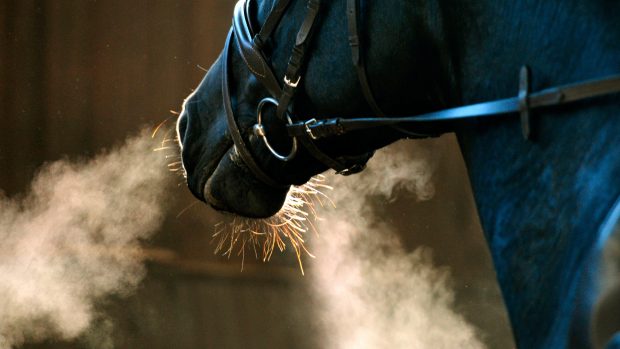Q: My horse suffers from ROA. She is fine during the summer as she lives out, but she suffers quite badly when in at night during the winter, even though I feed haylage. Do you have any suggestions on how I can help relieve her symptoms?
Christine Smy replies: Recurrent Airway Obstruction (RAO), formerly known as Chronic Obstructive Pulmonary Disease (COPD), is a common respiratory problem. It is associated with dust and mould spores commonly found in sun-dried forages, such as hay and straw.
Even the best quality hay, which appears to have no dust when shaken, will contain thousands of microscopic spores, potentially causing a challenge to the respiratory system, resulting in coughing and wheezing.
There are several ways to feed forages to COPD sufferers:
- Soaking hay: Pull the hay apart, shake it and submerge totally for 10 minutes only. This either washes out the spores or swells them so they are ingested rather than inhaled. Soaking for more than 10 minutes will destroy nutrients.
- Feeding haylage: This has a higher moisture content than hay, around 35-50% compared to 15% in hay. The higher moisture sticks the spores to the stem, preventing them from being inhaled.
However, in your mare’s case, it isn’t working, so your haylage may be too dry and releasing some spores. If possible, check the moisture content of your haylage by either looking at the bag (if it is a proprietary brand), asking who you bought it from or by feelingit. If it has a dry texture similar to hay, it may well be too dry.
Once a bag of haylage is opened, keep it away from both heat, to prevent it drying out, or damp, which would encourage mould. Use it up within three days.
- Feed a hay replacer: The best are a blend of dried grass or alfalfa mixed with oat straw or hay and lightly coated with molasses. Don’t substitute hay with a molassed chaff as it will not provide adequate fibre or nutrition.
- Replace straw bedding with dust-free shavings or paper bedding. Make sure you muck out thoroughly, every day and do not muck out while your horse is in the stable.
- Make sure your mare isn’t stabled near horses bedded on straw or fed hay, or near to hay or straw storage as spores can travel long distances in the wind.




